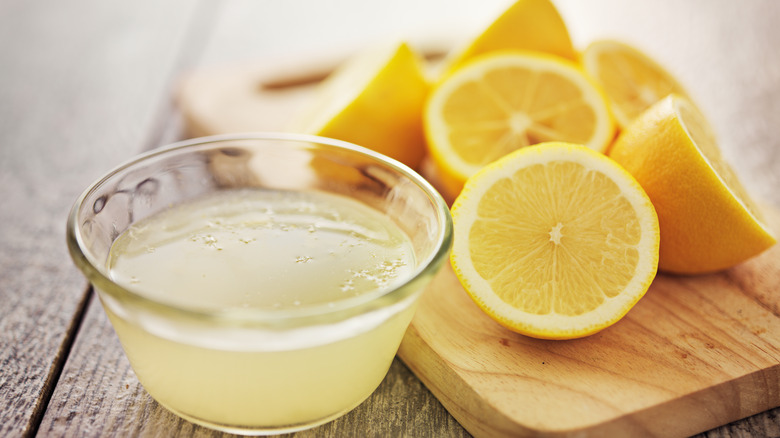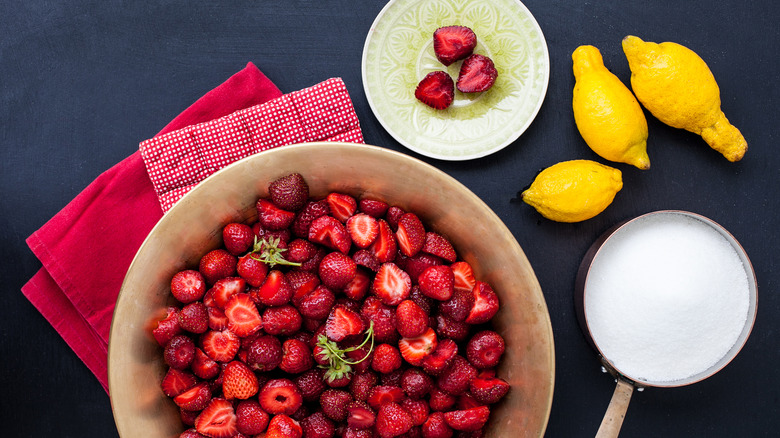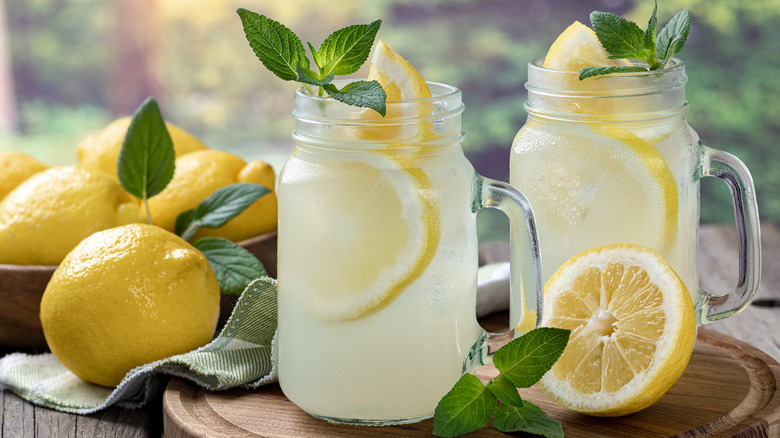When To Use Bottled Lemon Juice Over Fresh
Lemon juice is the kind of miracle ingredient that can bring a burst of liquid sunshine to everything it touches. Whether acting as the juicy backbone of lemonade or as the hit of acidity behind a perfectly balanced jar of strawberry jam, lemon juice has a lovely versatility. The only catch? It's not always easy to keep the fresh stuff on hand.
To cut down on the hassle of juicing lemons and making the liquid more shelf-stable, companies have offered bottled lemon juice. Though attractive for its less fussy benefits, blind taste tests often reveal participants' preference for fresh lemon juice, citing it has a flavorful edge on its bottled counterpart. Before you dismiss bottled lemon juice as sacrilegious, however, know that this convenience item has its definite uses.
Particularly in the process of jam-making or in other cooked condiments, bottled lemon juice offers a consistent level of acidity, which can affect the texture of the final result, something that fresh lemon can't compete with. Plus, you can hardly taste the difference in the end product. However, if the recipe requires a taste of fresh-squeezed juice, like for the ultimate lemonade or a shaken lemon drop shot, it's best to break out your juicer.
Choose bottled lemon juice for consistent acidity
In jam and jelly making, lemon juice is often used for two reasons. First, the sugary condiment can benefit from a bit of tang to balance out its more saccharine qualities. Second, pectin, the main ingredient that helps jams and jellies actually gel, needs a bit of acid to help lower the pH, activating its thickening properties. This need for acidity is what makes bottled lemon juice so effective in the jelly-making process.
Bottled lemon juice has a strict acidity level that it consistently hits, usually about 4.5%, according to FDA regulations. With fresh lemon juice, however, things are less easy to predict, which may lead to various textures and tastes in your final dish.
In addition to offering a consistent pH, bottled lemon juice is much harder to tell apart from fresh when cooked. This means that your lemon curd could be hypothetically made with solely bottled lemon juice without suffering any flavorful consequences.
Opt for fresh lemon in uncooked recipes
Still, when heat isn't involved, there's very little that can replace the flavor of fresh lemon juice. Why? Bottled lemon juice has additives and preservatives to make it more shelf-stable. It also sits oxidizing longer than the fresh-squeezed stuff. All of this leads to a noticeable change in quality between the two, especially when you add it raw (i.e. uncooked) to a dish.
This rule obviously applies to all lemon-based drinks and cocktails, like lemonade or a lemon drop martini, but it also comes into play any time you use a spritz of lemon juice to brighten up your seafood, like a plate of shucked oysters or grilled fish. Fresh lemon juice is also key to a light lemon glaze for muffins or cakes as well as a lemony vinaigrette meant to dress up a bowl of greens. Anywhere that the lemon flavor is at the forefront of the dish, fresh citrus is your best bet.



